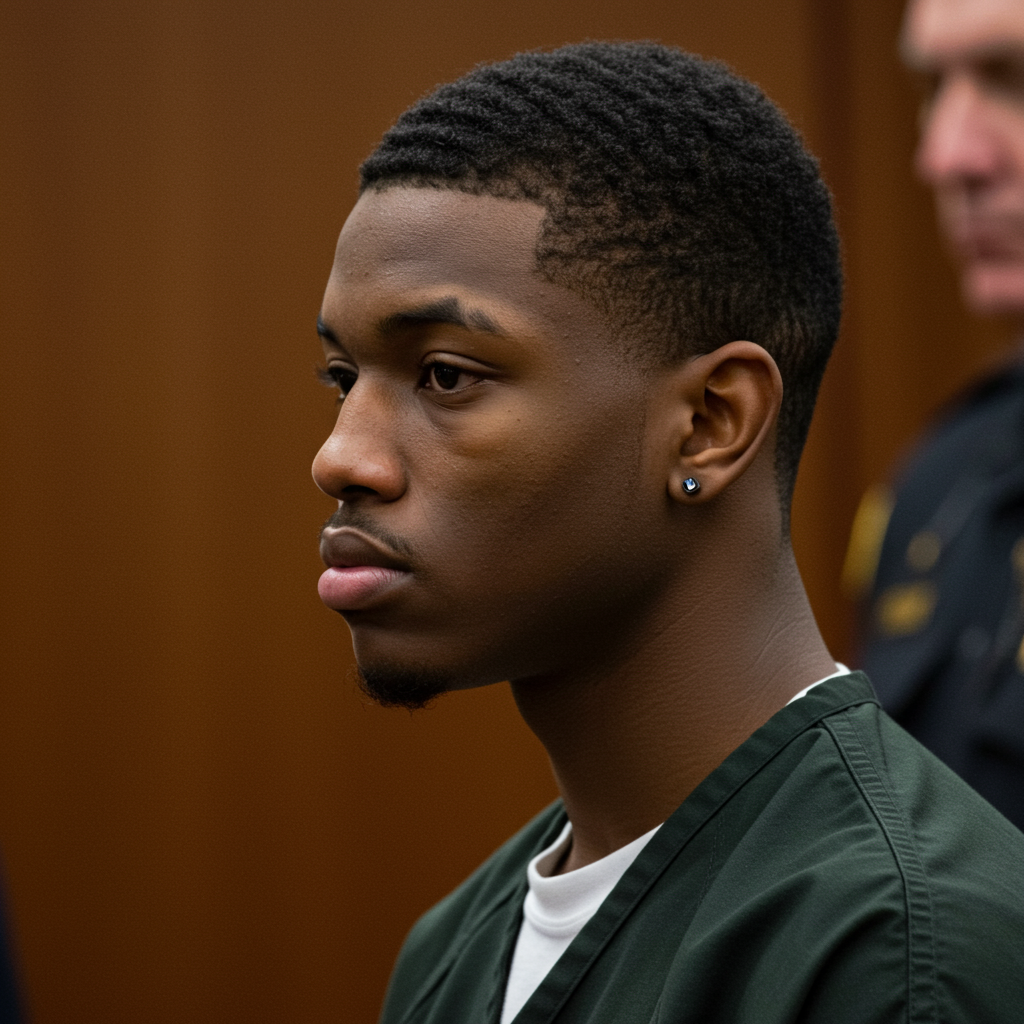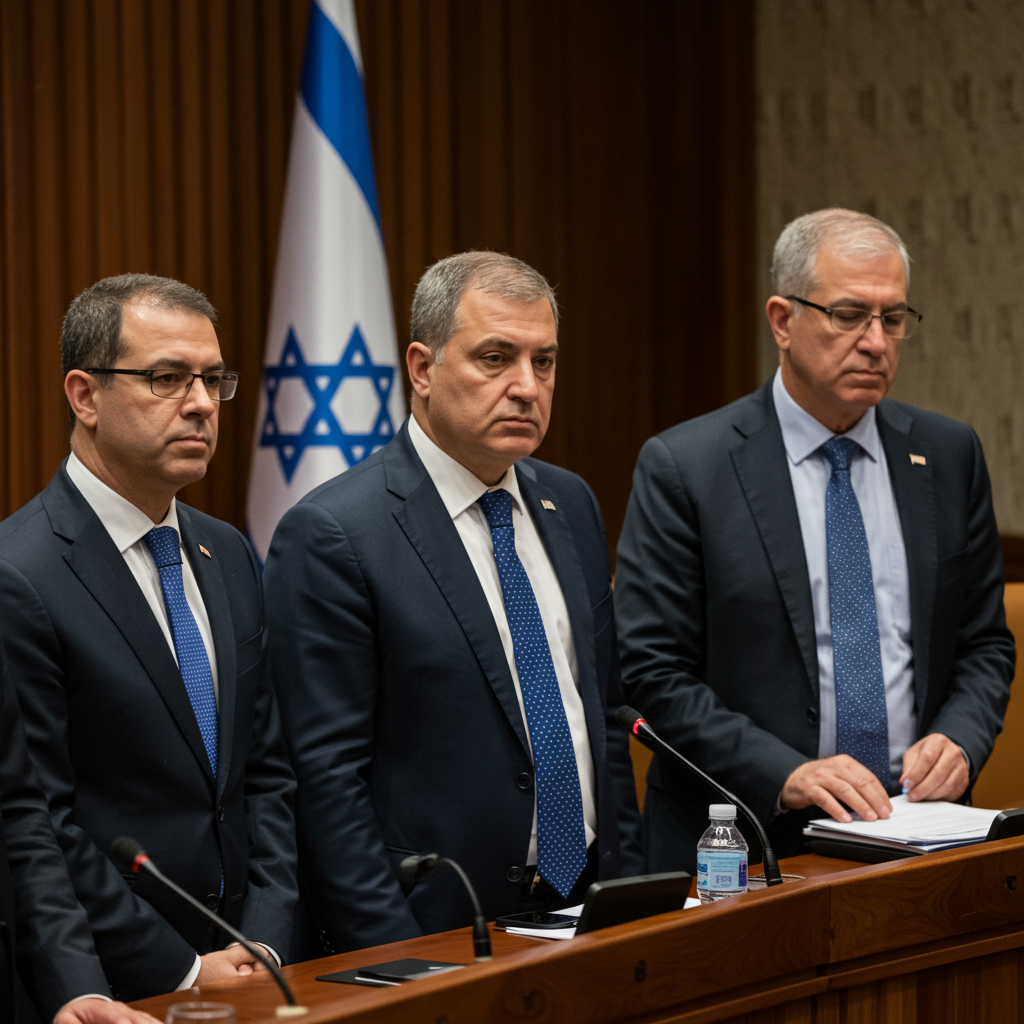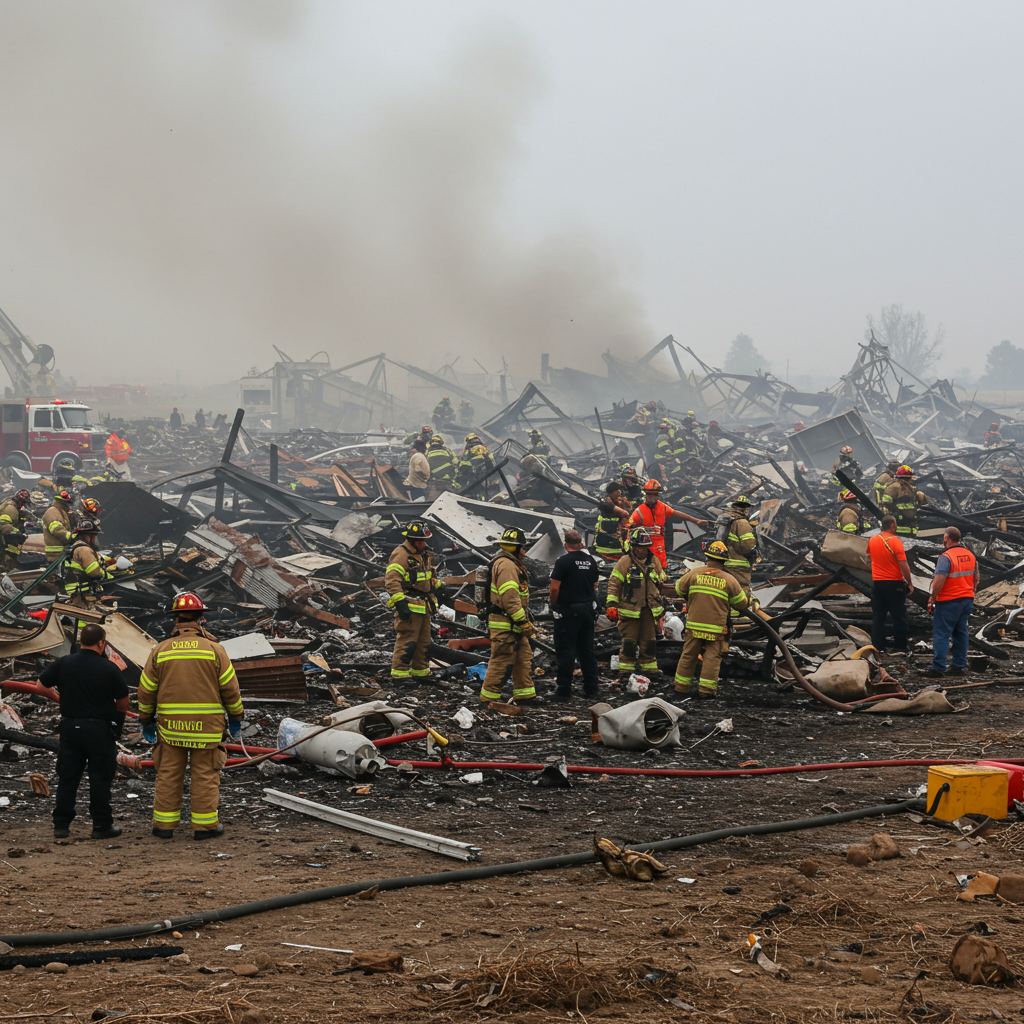The nation grapples with the fallout from a high-profile tragedy as Tyler Robinson, a 22-year-old from Utah, stands accused in the assassination of conservative youth leader Charlie Kirk. This shocking incident, which unfolded last week at Utah Valley University, has ignited a fierce debate about political violence and online radicalization. Authorities moved swiftly, apprehending Robinson after a multi-day manhunt, but the question of “why” continues to loom large. This deep dive unravels the complex narrative, from the alleged shooter’s surprising background to the unsettling clues left behind, and the broader societal implications of such a profound act.
The Assassination of Charlie Kirk: A Nation Stunned
On September 10, conservative activist Charlie Kirk, 31, was fatally shot in the neck during his “American Comeback Tour” speaking engagement. The tragic event occurred at Utah Valley University in Orem, Utah, approximately 20 minutes into his speech to an audience of around 3,000 people. Chaos erupted immediately following the gunfire. Kirk, known for co-founding Turning Point USA and his ardent support for former President Donald Trump, was a polarizing but influential figure. His death sent shockwaves through conservative circles and across the political spectrum, sparking widespread mourning and condemnation. Initial confusion surrounded the suspect’s status, but law enforcement quickly confirmed he was at large, initiating a tense, multi-day manhunt.
Tyler Robinson: Unraveling the Suspect’s Background
Tyler Robinson, the man now at the center of this national story, was apprehended two days after the shooting. His arrest followed a critical tip from his own family, including his father, who recognized him from surveillance images. Robinson, a 22-year-old electrical apprentice from Southern Utah, had always been described as “squeaky clean,” “considerate,” and “quiet” by those who knew him. Neighbors and family friends painted a picture of a reserved, intelligent young man from a churchgoing Mormon family in Washington City. His parents were registered Republicans, and his grandmother, Debbie Robinson, expressed profound disbelief, stating she had never heard him discuss politics.
Robinson’s academic record was notable. He was a promising scholarship winner in high school, taking advanced classes and earning concurrent enrollment credits. He briefly attended Utah State University as a pre-engineering major in 2021 before pursuing an electrical apprenticeship at Dixie Technical College. Public records confirm he had no prior criminal convictions, felonies, or violent offenses. This seemingly unblemished past starkly contrasts with his current status as a suspect in a high-profile political killing, leaving many to wonder about the path that led him here.
The Investigation: Arrest and Unsettling Evidence
The manhunt for Robinson concluded on September 12 with his arrest, publicly announced by both President Donald Trump and Utah Governor Spencer Cox. Robinson was taken into custody without bail at Utah County Jail and placed under special watch for evaluation. His arrest came after a family friend alerted authorities, stating Robinson had either confessed to or implied his involvement.
Investigators swiftly connected Robinson to the crime through a combination of online messages, interviews, and surveillance video. A search of his Washington City home yielded a car and other crucial items. Among the most disturbing evidence were inscriptions found on bullet casings discovered with the weapon – a high-powered, bolt-action Mauser 98 .30-06 rifle. These inscriptions, seemingly referencing online trolling humor and potentially the anti-fascist movement (Antifa), provided a chilling glimpse into a potential ideological shift. One fired casing reportedly read “notices bulges OwO what’s this?”, an internet meme. Unfired casings bore messages like “If you read this, you are gay lmao,” “Hey fascist! Catch!” and even lyrics from “Bella Ciao,” a song honoring World War Two Italian resistance partisans. These clues suggested a deep immersion in internet culture and a possible radicalization.
Unraveling the Motive: Online Radicalization and Political Discontent
While Tyler Robinson remains uncooperative with authorities, a clearer picture of his potential motive is beginning to emerge. Utah Governor Spencer Cox revealed that Robinson had become “more political” in recent years, a departure from his family’s non-political stance. Prior to the shooting, family members informed investigators that Robinson had discussed Charlie Kirk’s upcoming campus event, expressing a strong dislike for Kirk and his viewpoints, believing him to be “full of hate and spreading hate.”
Robinson’s engagement with online culture appears to be a key factor. His roommate reportedly showed investigators Discord messages from an account named “Tyler,” referencing a rifle “drop point” and instructions on retrieving and hiding the weapon. Discord subsequently suspended Robinson’s account for violating its off-platform behavior policy, though they stated they found no evidence of him planning violence on their platform. Former classmates described Robinson as politically active, outspoken about rights, deeply immersed in internet and meme culture, and critical of perceived systemic failures from both political sides. This paints a picture of a young man potentially radicalized in “the dark corners of the internet,” as Governor Cox suggested. The FBI continues to investigate Robinson’s background and political leanings, acknowledging the incident’s broader implications for the US political divide.
Charges and Legal Proceedings
Tyler Robinson is currently held without bail at Utah County Jail, facing serious felony charges. These include aggravated murder, felony discharge of a firearm causing serious bodily injury, and obstruction of justice. His first court appearance is scheduled for September 16. Given the severity of the charges and the high-profile nature of the case, Utah Governor Cox has publicly called for prosecutors to pursue the death penalty, which is a legal option in Utah and can involve a firing squad. Robinson’s trans partner, who is reportedly cooperative with investigators and had no knowledge of the alleged plot, has also been part of the ongoing inquiry.
Broader Implications: A Surge in Political Violence
Charlie Kirk’s assassination has transcended a singular criminal act, becoming a stark symbol of a deeply troubling national trend. Experts, like Wendy Via, CEO of the Global Project Against Hate and Extremism, warn of a “deeply concerning surge in political violence” in the U.S. during the Trump era. Data suggests this period represents “the most profound surge in political violence since the 1970s,” indicating a dangerous escalation in ideological tensions. Governor Cox seized the moment to plead for an end to political rage and division, urging young Americans to choose a “different path” than violence.
The incident also highlighted concerns about event security, with reports noting limited police presence and no bag checks at Kirk’s speaking engagement. In the wake of her husband’s death, Erika Kirk, Charlie Kirk’s widow, made a powerful public statement. She vowed to continue his mission, declaring that the “evil-doers for my husband’s assassination have no idea what they have done,” and pledged to carry on his campus tours, radio, and podcast shows. President Trump announced his intent to attend Kirk’s funeral and echoed calls for the death penalty, urging lawmakers to remain vigilant regarding security at their events. Deputy Secretary of State Christopher Landau issued a warning that foreign nationals glorifying Kirk’s killing could face consequences under a new visa policy, underscoring the incident’s perceived national security implications.
The profound mystery surrounding Tyler Robinson’s alleged actions continues, as does the national conversation sparked by Charlie Kirk’s untimely death. It serves as a somber reminder of the fragility of civil discourse and the escalating risks of political polarization in modern society.
Frequently Asked Questions
What are the specific charges Tyler Robinson faces?
Tyler Robinson is being held without bail and faces serious felony charges, including aggravated murder, felony discharge of a firearm causing serious bodily injury, and obstruction of justice. Utah Governor Spencer Cox has publicly called for prosecutors to consider the death penalty, which is a legal option in Utah and can involve a firing squad, given the high-profile nature of the case.
Where did Tyler Robinson’s alleged radicalization take place?
While the full extent is still under investigation, evidence strongly suggests Tyler Robinson’s alleged radicalization occurred within “the dark corners of the internet.” Discord messages from an account associated with him referenced a rifle drop point, and bullet casings found with the weapon featured inscriptions related to internet memes and anti-fascist themes. His family also noted he had become “more political” in recent years, despite their non-political background.
What broader concerns about political violence has Charlie Kirk’s assassination raised?
Charlie Kirk’s assassination has significantly amplified concerns about a “deeply concerning surge in political violence” across the United States. Experts suggest this period marks the most profound increase in political violence since the 1970s, highlighting growing ideological divisions and the potential for extremism. The incident has prompted calls from leaders like Governor Spencer Cox for an end to political rage and a plea for young Americans to choose non-violent paths.
Conclusion
The assassination of Charlie Kirk by suspected shooter Tyler Robinson marks a tragic turning point in the ongoing narrative of political polarization in the United States. From Robinson’s perplexing transformation from a quiet, bright student to an alleged assassin, fueled by a possible cocktail of online radicalization and political grievances, the case offers a sobering look into the undercurrents shaping contemporary society. As the legal proceedings unfold and the nation grapples with its implications, this incident serves as a critical reminder of the urgent need for constructive dialogue, media literacy, and a concerted effort to mitigate the escalating risks of extremist thought and political violence. The questions it raises about community, online influence, and the future of political discourse will resonate for years to come.




